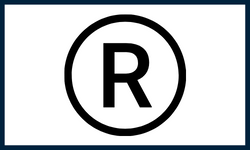*Originally posted on March 30, 2015
 Trademark law in the United States is all about “use.” When you’re using your trademark it is accumulating goodwill and you are exercising your trademark rights. Absent “use,” your trademark rights dwindle and the trademark itself is subject to abandonment. This is an important principle, particularly, when you are applying to register a trademark with the USPTO. If you fudge the date of first use and your registration is challenged, you risk losing the registration altogether. This is a real risk. In Couture v. Playdom, Inc., the trademark owner learned the hard way. The trademark owner, David Couture, registered the trademark PLAYDOM for entertainment services. To demonstrate trademark use, Mr. Couture sent the USPTO a screen capture of his website, which stated “welcome to Playdom Inc.com”. He attributed the date of trademark first use to be May 30, 2008. On January 13, 2009, the USPTO issued Mr. Couture a trademark registration. On February 9, 2009, Playdom, Inc. filed a trademark registration application for the identical trademark, which was rejected by the PTO citing Mr. Couture’s registered trademark. On June 15, 2009, Playdom filed a petition to cancel Mr. Couture’s trademark registration. It argued that the Couture trademark was void ab initio because Mr. Couture had not used the trademark in commerce as of the date of the trademark application. On February 3, 2014, the Trademark Trial and Appeal Board granted the cancellation petition.
Trademark law in the United States is all about “use.” When you’re using your trademark it is accumulating goodwill and you are exercising your trademark rights. Absent “use,” your trademark rights dwindle and the trademark itself is subject to abandonment. This is an important principle, particularly, when you are applying to register a trademark with the USPTO. If you fudge the date of first use and your registration is challenged, you risk losing the registration altogether. This is a real risk. In Couture v. Playdom, Inc., the trademark owner learned the hard way. The trademark owner, David Couture, registered the trademark PLAYDOM for entertainment services. To demonstrate trademark use, Mr. Couture sent the USPTO a screen capture of his website, which stated “welcome to Playdom Inc.com”. He attributed the date of trademark first use to be May 30, 2008. On January 13, 2009, the USPTO issued Mr. Couture a trademark registration. On February 9, 2009, Playdom, Inc. filed a trademark registration application for the identical trademark, which was rejected by the PTO citing Mr. Couture’s registered trademark. On June 15, 2009, Playdom filed a petition to cancel Mr. Couture’s trademark registration. It argued that the Couture trademark was void ab initio because Mr. Couture had not used the trademark in commerce as of the date of the trademark application. On February 3, 2014, the Trademark Trial and Appeal Board granted the cancellation petition.
On March 2, 2015, the United States Court of Appeals for the Federal Circuit affirmed the judgment of the Trademark Trial and Appeal Board. The court held that to apply for registration of a mark, it must be “used in commerce,” which means the bona fide use of the mark in the ordinary course of trade. It wrote, “an applicant’s preparations to use the mark in commerce are insufficient to constitute use in commerce. Rather, the mark must be actually used in conjunction with the services described in the application for the Mark.” Merely advertising or publicizing what the applicant intends to do with the mark is not sufficient to support registration. Because there was no evidence that Mr. Couture rendered any services before 2010, his trademark registration was held void ab initio.
The federal circuit court’s opinion is in line with other circuits and demonstrates the importance to trademark holders of getting the date of first use right otherwise the trademark owner risks losing the registration

